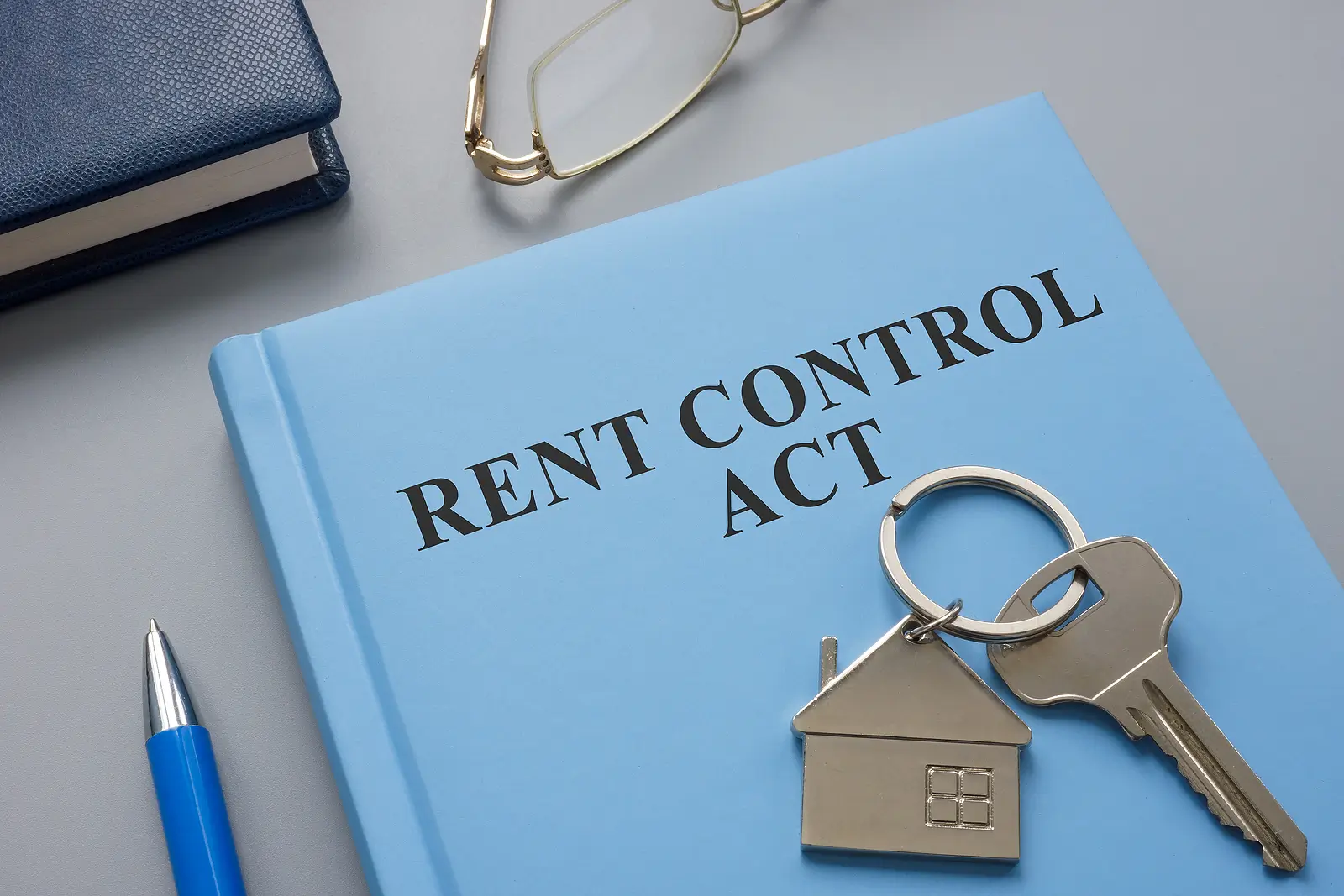In the ever-shifting landscape of property management, a new season has arrived in Washington, bringing with it a set of rules that will reshape the rental market.
The state has introduced its first major rent control legislation, a development that requires your immediate attention. Navigating this new regulatory environment is not just about compliance; it's about strategically positioning your investments for continued success.
This guide will walk you through everything you need to know about Washington's rent control laws.
We will break down the complexities of HB 1217, explain the new rent increase limits, detail tenant protections, and provide actionable tips to help you adapt.
Key Takeaways
Rent Increase Caps: You can only raise rent once per year, capped at the lower of 7% plus CPI (inflation) or 10%. No increases are allowed in the first 12 months of a tenancy.
Strict Notice Requirements: Landlords must use a state-issued form and deliver at least 90 days' written notice ahead of any rent increase.
Compliance is Essential: Significant penalties—including hefty fines and possible lawsuits—make detailed compliance with Washington rental housing laws a must.
What Are Rent Control Laws?
Rent control laws set government-mandated limits on how much you can charge for rent and how much you can increase it. Their main objective is to make housing more affordable and prevent extreme pricing in tight markets.
These regulations try to balance tenant protections by guarding against sharp rent hikes with your right as a property owner to earn a fair and predictable return. Understanding where these lines are drawn is fundamental to navigating the Washington rental market regulations.
Overview of Washington's Rent Control Law (HB 1217)
Passed in 2025, HB 1217 established the first statewide rent control policy in Washington. This law introduces maximum annual rent increase percentages, standardized notification procedures, and additional rules for property owners.
While HB 1217 applies everywhere in the state, some cities like Seattle and Tacoma have stricter local rules, so you must always follow the most protective ordinance.
Rent Increase Limits Under HB 1217
Annual rent increases are now capped by law. Under current Washington rent increase rules, the maximum rise each year is the lower of 7% plus inflation (as measured by the Consumer Price Index) or a strict 10%—never more.
Example: If inflation (CPI) is 2%, your maximum annual rent hike is 9% (7% + 2%). If CPI is 4%, your limit is 10%. The state's Department of Commerce announces each year's CPI benchmark. Understanding and not exceeding these limits is vital for legal compliance.
Rent Control Notice Requirements
You now must give tenants at least 90 days' written notice (up from the previous 60 days) before any rent increase, using a standardized state-mandated notice form. Failure to use the correct form or properly deliver notice can render an increase unenforceable, exposing you to legal risk and possible financial penalties.
Washington Rent Control Exemptions Explained
Not all rentals are covered. HB 1217 offers some Washington rent control exemptions to promote new housing and flexibility for smaller owners:
Residential buildings with a certificate of occupancy in the past 12 years.
Owner-occupied properties with four or fewer units.
Specific affordable housing units under government programs.
Be sure your property qualifies before assuming you’re exempt.
Tenant Protections in Washington
HB 1217 sharply expands tenant protections in Washington. Notably, you cannot increase rent at all within the first 12 months of a new tenancy, ensuring renters have a year of price stability.
The law also reinforces tenant rights. Any attempt to retaliate, such as raising rent after a tenant requests repairs, could be grounds for the tenant to file a complaint under Washington tenant eviction protections.
Rent Control Penalties in Washington
The cost of noncompliance is high. The Washington Attorney General enforces the law and can levy fines of up to $7,500 per violation, order repayment of unlawful rent, and even initiate class-action lawsuits.
These rent control penalties should motivate strict adherence to rental laws and notice requirements.
The Impact on Landlords
For landlords and property investors, the impact is significant. Limitations on rent increases directly affect your long-term financial projections and can shift the way you price, renew, or acquire new properties.
There’s also an administrative burden: managing lease schedules, delivering proper notices, and keeping evidence of compliance. Failure can mean costly mistakes, so update your Washington rental property management processes accordingly.
How It Affects Tenants
From the renter’s perspective, these laws offer greater stability. Tenants are shielded from sharp or surprise rent hikes thanks to the new rent increase limits in Washington.
Still, tenants should stay informed about their rights under Washington rent control—especially how to dispute an improper increase or act if they don’t receive proper notice.
How Rent Control Affects the Washington Rental Market
The broader effects are still emerging, but most experts agree these rules will stabilize rents and help prevent tenant displacement in high-cost areas like King County.
However, some worry about property values. Caps on rent growth may dampen investor appetite for older buildings, and there are concerns that the 12-year new-construction exemption is not enough to spur ongoing development.
The law’s actual market impact on supply, property value, and investment remains to be seen.
Compliance Tips for Washington Landlords
Adopt a compliance checklist for every rental. Track each lease’s start date to follow the 12-month freeze rule. Use only official state forms for notices, keep thorough documentation of delivery, and always double-check local regulations.
Review and update your systems now; best practices for Washington landlords are to anticipate changes and document every step.
Common Challenges and How to Overcome Them
Tenants may misunderstand the new laws or miss notices. Communicate proactively and professionally; clear explanations prevent trouble.
If you do run into a dispute, mediation services can help resolve most issues amicably. Consulting a property management or legal expert is a wise investment.
Frequently Asked Questions
1. Can I add last year’s missed rent increase to this year’s raise?
No. “Banking” increases aren’t allowed. Each 12-month period stands alone—you can’t carry forward.
2. Is the rent cap applied to fees for amenities, parking, or pets?
Technically, the law covers “rent” increases. Significantly raising other charges to sidestep the cap is risky and could be challenged. Consult an attorney before making such changes.
3. Do I follow city or state law if the rules conflict?
Always adhere to the more protective regulation. If your city—like Seattle or Tacoma—has stricter rent control laws, those take precedence over the state’s requirements.
Navigate the New Norm and Partner with SJC Management Group
Washington’s rent control laws add objective complexity to property management and investing. Diligence and regular review of your compliance procedures are now non-negotiable.
By mastering HB 1217 and its local variations, you safeguard your assets, maintain a steady income, and build trust with tenants.
Feeling swamped by paperwork and new obligations? SJC Management Group specializes in expertly navigating Washington’s rental landscape, so you don’t have to.
Let our experienced professionals handle the details, ensuring your properties stay compliant and your investments thrive.
Contact SJC Management Group today and turn change into opportunity through our rent collection, tenant screening, and other services.
Other Resources:
Tenant Screening Guide: Questions Puyallup Landlords Should Never Ask
Top Tenant Communication Mistakes Puyallup Landlords Should Avoid


